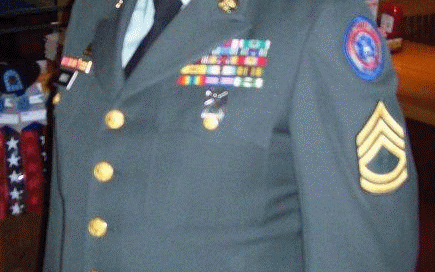Note: June 6, 2024, marked the eightieth anniversary of D-Day, the Allied invasion of France that heralded the defeat of Nazi Germany. President Joe Biden travelled to Normandy to participate in the solemn commemorative ceremonies of Operation Overlord, and there was nothing objectionable in his remarks. But listening to them, I was moved to wonder what I might have said if I were placed in the President’s position. I wrote out my hypothetical speech and published it here on Substack. False modesty aside, I think it was not bad. Anyhow, here it is again.
Dwight D. Eisenhower titled his war memoirs Crusade in Europe, and there was truth in that. Toward the end of the war a British Army doctor, who happened to be Jewish, wrote home to his wife that having seen something of National Socialism’s crimes against humanity, he now understood what the war was all about and why it was such an honor to wear the uniform.
No doubt many of those who served in that great crusade came to feel the same. But many others had no opportunity of doing so. They lost their lives somewhere along the road that ran from Egypt through Libya and Tunisia to Sicily and Italy and finally from the D-Day beaches to the Elbe River. And that was but one of the Second World War’s many long and bloody and sorrowful roads.
Of those who served in those years and came home, only a handful remain with us today. We do them honor and we honor the memory of their late comrades as best we can—but we were not there. We can perhaps imagine what it was like. Literature, movies, television—when at the top of their form they can help us to do so. But the Second World War has not marked us as it marked them.
The price was high: That’s the bottom line. The bill had to be paid, there was no alternative, but the price was terribly high. Well over 400,000 American service personnel lost their lives between Pearl Harbor and VJ Day. Some of the dead were killed within moments of their baptism of fire. Others died in the last days of the war, with victory in sight.
Imagine that statistic in terms of families: mothers and fathers, brothers and sisters, wives, sons and daughters. Every one of those deaths cast a shadow of grief and sorrow over some patch of our country. And besides the dead there were hundreds of thousands more who sustained wounds, some terribly grievous, whose pain they carried with them down the years. Nor is war a respecter of justice, fairness, or equity. All too often, it picks out and kills the best and the brightest.
Reflecting on these somber truths, my own pride in having worn the uniform is severely tempered. In my day there was no great crusade. I’m not complaining about that; “May you live in interesting times,” as the ancient Chinese curse has it. The veterans of the justly titled greatest generation can attest that great crusades have their drawbacks.
On this, the eightieth anniversary of D-Day, which heralded the defeat of Nazi Germany, words like glory and honor and courage and patriotism seem out of place. It’s not that they’re false words. Glory there was, and honor, and peerless courage, and patriotic spirit in plenty. Those were the virtues that American soldiers, sailors, Marines, coastguardsmen, and airmen brought to the battle. But war itself is not glorious, nor honorable, nor a proper expression of patriotism. War is the distillation of humanity’s worst instincts. And nobody knows this better than those who have been to see the elephant.
May God preserve us from another war like that which America had to fight to rid the world of Hitler and his evil regime. But if such a war is once more forced upon our country, as may be, let the example of the men who hit these beaches on June 6, 1944, guide us through the storm.
Gentlemen, on this, the eightieth anniversary of your day of days, I salute you.




Well done
Well put!